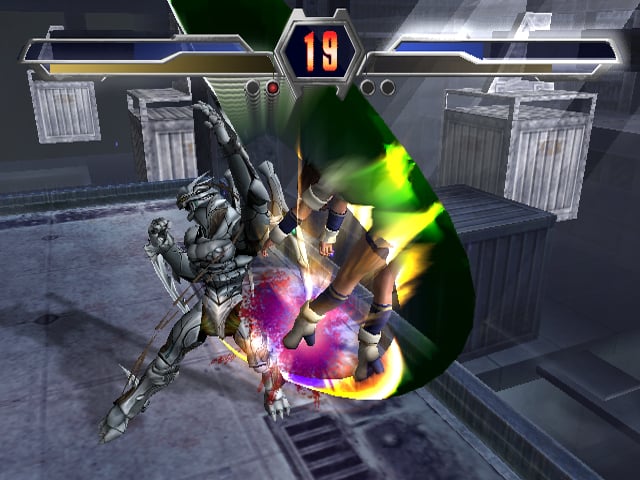
There's some nonsense about good and evil, a guiding earth-spirit, and some atrociously bad lipsynch for the voiceovers, but it makes little sense and has practically no continuity with the other games in the series, each of those plots amounting to almost zero to begin with. Story-wise, there isn't much to talk about. Naturally, any game about people changing into animals is going to include a wolf, but besides that traditional nod, returning faces from previous rosters include a chameleon with stealth abilities, two rival tigers who are masters of Kung-Fu, a cute kitten, a sultry she-bat, and an insectile creature who could be the long-lost brother of anime's " Guyver." New additions include a crow with flying combos, a large brawler/little girl duo who fight as one, and a rugged female that sprouts crusty armor and a long blade. The game and its forebears take the idea of "Zoanthropes"-people with the ability to transform into beasts-and merges it with a standard fighting game formula. Technically fourth (although really the sixth if you count cross-system updates) it's the perfect example of the sort of game that seems to poised to make its mark on the world and then inexplicably proceeds to hang out at the local mall for its entire adult life. It has never been at the top of its class, but the earlier games, especially the third iteration, were pretty respectable. Originally debuting back in 1997, Hudson's Bloody Roar was promptly (and not unfairly) pigeonholed as a C-list offering cashing in on the then-new trend of 3D fighting games. There's some debate as to whether the phenomena really exists on a generational level, but that particular debate aside, I think it's a useful concept that can certainly apply to videogames.

There are a number of books addressing the subject, giving all sorts of advice to those who deal with friends, relatives and children who never get out of the starting gate to take life by the horns. Referring, for example, to those individuals who still live in their mom's basement at age 35 and who routinely hit dad up for a loan to tide them over until the paycheck from Burger King arrives. It's a phrase most recently used to describe a young generation of children who fail to meet their parents' expectations.


 0 kommentar(er)
0 kommentar(er)
